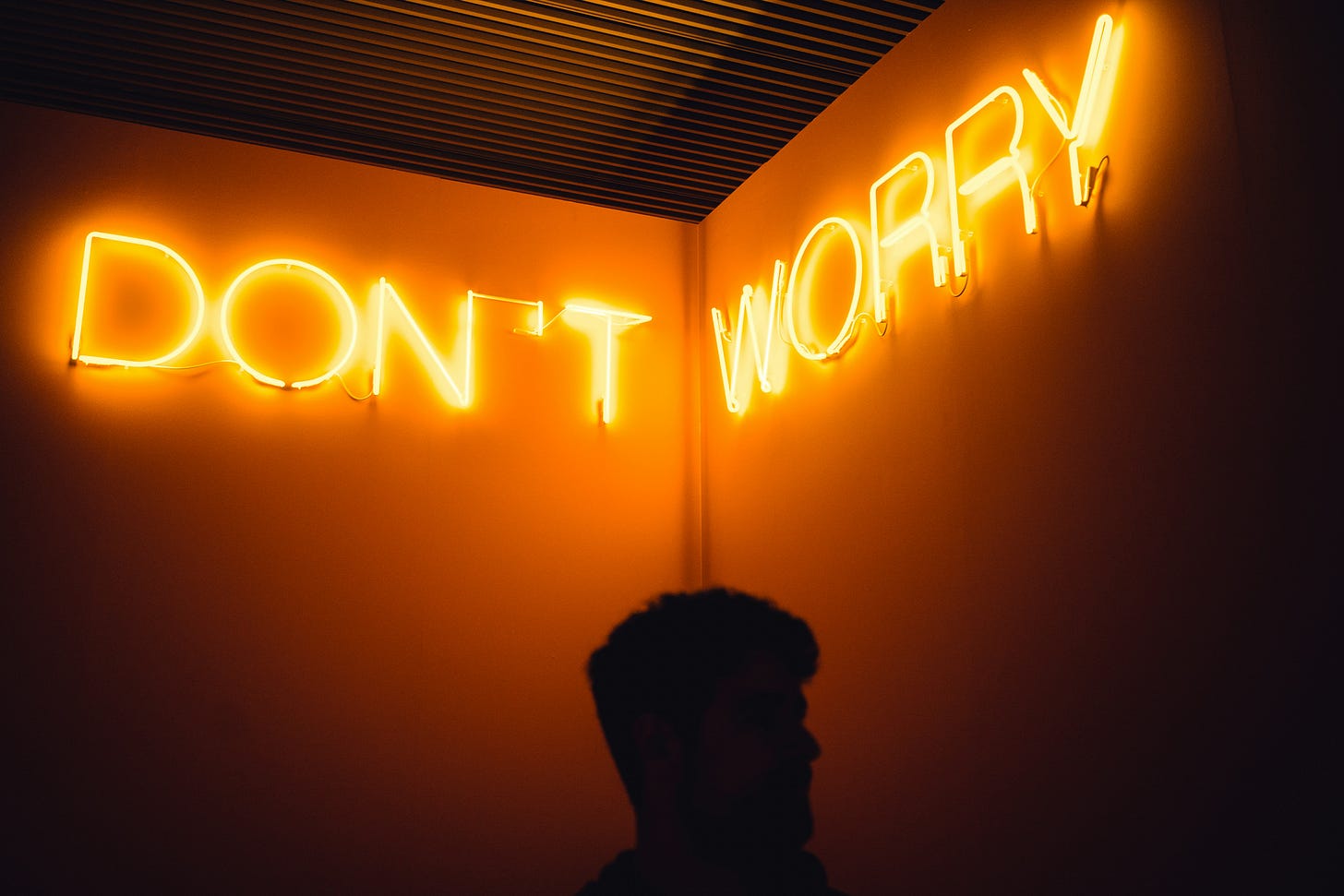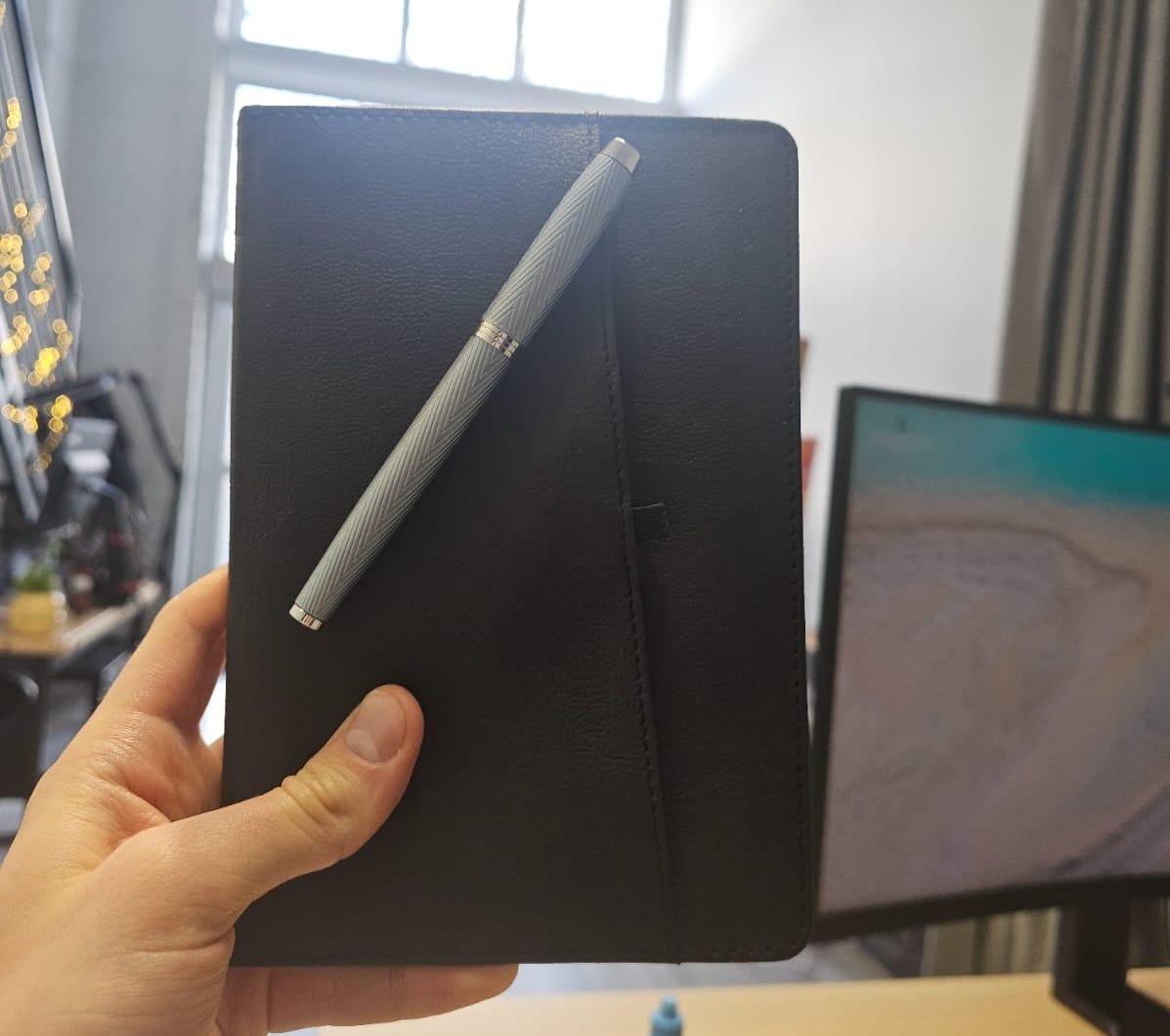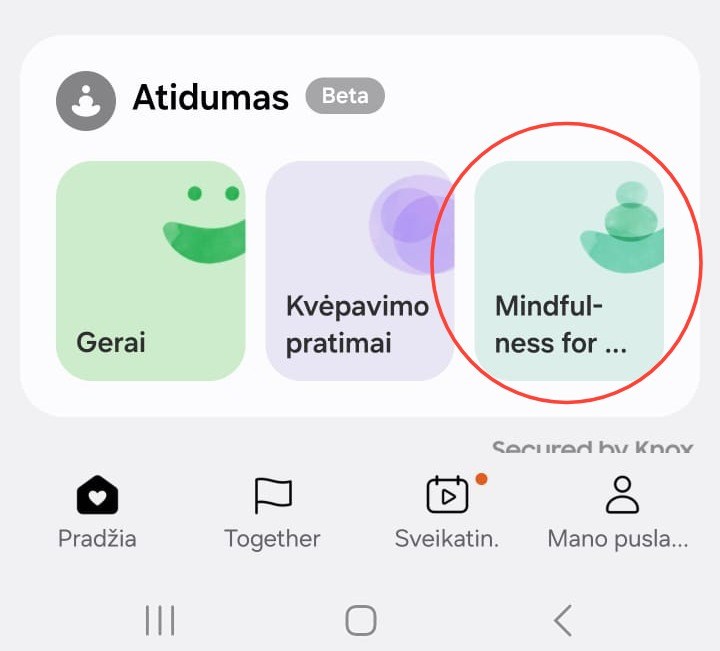Tired of Constant Stress? These 4 Solutions, Each 90 seconds or Less, Will Change Everything.
What I Learned When Money Couldn't Fix My Stress (And What Finally Did)

Tuesday morning at the swimming pool, eight to ten other people are practicing alongside me.
As usual, I start feeling great, confident strokes, smooth rhythm. But the longer I swim, the quicker I become out of breath. With swimming, there's a delicate balance: exhale underwater, turn your head to inhale, repeat.
But something doesn't feel right today. With each breath cycle, I feel that I am getting out of air. My chest tightens, and panic suddenly rises.
Before I know it, I'm hanging on the edge of the pool, gasping, trying to talk myself down from a full-blown panic attack.
What’s interesting to me about this event? This wasn't my first time. I'd been swimming regularly every Tuesday and Thursday for more than four months. But what made this day different was the invisible weight I'd been carrying for weeks – stress building up from multiple areas of my life.
That Tuesday morning was just the breaking point where my body finally said: Enough.
The Dangerous Middle Ground
I'm almost certain that 99% of us think we're managing stress "moderately well" on a day-to-day basis. That, my friend, is a dangerous zone to be in.
Because when you believe you're handling things fine, even though reality is quite different. Your body is silently absorbing the impact; you eventually hit a downward spiral of uncontrollable stress. For me, the unmanaged stress usually ends up with terrible headaches lasting days, that even a good night's sleep won’t help, or awful stomach pains.
Yet I still thought, "I'm handling this," while my body was screaming, "NO! YOU ARE NOT!"
The most bizarre part? When these moments hit, we have no idea how we ended up there. But by then, it's already too late.
We can't eliminate stress from our lives. But we can implement better foundations for handling stress before it starts to control us.
Beyond "Just Relax" - What Actually Works
Look, I get it, you're probably thinking, "Great, another person telling me I'm stressed and should meditate or whatever."
But this isn't about quitting your job to become a yoga instructor or spending two hours a day in meditation. I don't have time for that either.
What I've discovered instead are simple, science-backed tweaks that take minutes, not hours – yet make a dramatic difference when used consistently. No dramatic life changes required.
The beauty of these techniques is that they work even if:
You're skeptical about "wellness culture" (I was too)
You don't have obvious physical symptoms (yet)
You're busy and can't add complicated routines
You've tried other approaches that haven't stuck
So, whether your stress shows up as minor panic attacks like mine, or just as that constant mind background buzz of anxiety that never quite goes away, these four evidence-based techniques are worth up to five minutes of your time to learn, I categorized them by difficulty: easy, moderate, and challenging.
1. Stress Isn't Your Enemy, Your Perception Is
Difficulty - (Easy)
Here's something that blew my mind: A study followed thousands of Americans for eight years and discovered that people who experienced high stress AND most importantly viewed stress as harmful had a significantly increased risk of premature death.
However, those who experienced high stress but didn't view it as harmful showed no increased mortality risk [1].
Dr. Kelly McGonigal of Stanford explains this beautifully:
"When you change your mind about stress, you can change your body's response to stress."
This finding for me is one of those things that is super obvious, but it is incredibly difficult to implement in daily life, and just gets in from one ear and leaves from another.
Implementation: But this one tiny thing is a percentage that stacks up in the long run, to implement them, I like to break them down into tiny bites.
Find a piece of paper or open a sticky notes app on your desktop (the goal is to make it visible to you)
Wirte down a sentence where the primary goal is to describe that stress is the reaction of your body, and that helps you to lift yourself up to handle the current situation. Few examples:
(Generic version) This is my body helping me rise to this challenge.
(My personal version) When stress activates, this signals that my body is getting ready, my mind sharpens, and helps me embrace the challenge better.
Putting in a minimum effort to make it visible helps you to memorize it without any effort. Keep it visual for a week and see how your perception of stress changes.
2. The 90-Second Reset
Difficulty - (Moderate)
You are rushing to pick up keys from another room, and when you enter, it’s blank, you just forgot why you came here, and require a quick time to remember why you came there. Scientists have a name for it, "event boundary" effect, or I like to call it a “doorway effect”. This isn't just random forgetfulness; it's actually your brain's way of organizing experiences into discrete episodes. [10][11]
A unique thing is that we can use this to our advantage when dealing with stress.
When Stressful thoughts are not reinforced, they could easily vanish in approximately 90 seconds or less. Neuroscience research by Dr. Jill Bolte Taylor reveals that this is approximately the time when emotional responses usually last in our body. [2]
This "90-second rule" provides a critical window that most people miss because they're too busy spiraling in thoughts.
Here's where we can combine this potential brain disruption “doorway effect” into a powerful stress management tool by combining it with the 90-second reset technique.
Implementation:
Transform doorways into intentional stress reset zones by using them as cues for the three-phase intervention:
Recognition: As you approach a doorway, consciously name your current emotional state ("I am feeling overwhelmed by this project deadline", “I am feeling exhausted by this argument that we had,” etc.)
Respiration: While passing through the doorway, take six slow, diaphragmatic breaths. A textbook example is (5 seconds inhale, 5 seconds exhale).
I am feeling more comfortable while taking a loooong deep breath. At the end of inhaling, I count in my mind, 1, and at the end of the exhale, I count, 2.
Reorientation: Upon entering the new space, deliberately note five sensory inputs in your new environment (what you see, hear, etc)
This simply helps because you start focusing on different things. For example, right now I see the computer screen and a beautiful sunny day with a blue sky, feel my hands touching the desk, warm weather on my skin, and I hear construction somewhere outside.
This complete sequence takes at most 90-120 seconds and interrupts the stress cycle before it gains momentum.
3. Journaling as Emotional Processing
Difficulty - Challenging
This has been a pleasant experience for me and a fun evening activity to relive the day's events, especially because I physically write with a nice pen, the process itself becomes relaxing and chilling.
Plus, meta-analyses show that expressive writing significantly reduces mental health symptoms, with particular benefits for anxiety and stress [3].
Unlike just writing "dear diary" entries, effective journaling is about making sense of your feelings in a structured way. When you turn those random, messy emotions into a clear story on paper, something in your brain happens after some time. The thinking part of your brain gets more involved and helps calm down the emotional, fear-driven part. It's like your rational mind finally gets a chance to step in and say, "hey, let's look at this differently" [4].
Implementation:
Spend at the beginning at maximum 1-5 minutes just to get the momentum with each evening writing about your day's emotional challenges, focusing on feelings and potential lessons. Usually, I follow a less structured way, but I always try to include some of my emotions and how I felt throughout the day, since I don’t like restrictions and feel like I must follow only this template.
But it’s always great to have a structure you can rely on, especially in the beginning.
Here’s an inspiration for you: a three-part structure.
Think of when and where you could do this practice in the evening?
At the beginning, describe only 1 moment or the event that happened throughout the day, maybe you had a pleasant dinner with your friends, or had an argument with your boss.
Explore particular situation emotions and how you felt during that time.
Consider alternative perspectives or what you might have learned.
This helps you break the vicious cycle of obsessive thoughts and creates psychological distance from stressors.
4. Mindfulness in Small Doses - Big Results
Difficulty - (Challenging)
For the longest time, I thought meditation meant I had to sit like a pretzel on the floor for an hour straight, chanting "om" with a perfectly empty mind. Yeah, right. I quickly became uncomfortable just by sitting in the lotus pose, while my thoughts flew around like inside a tornado.
But here's the cool thing I discovered: you don't need marathon meditation sessions to get the benefits, science backs this up, too. A study from 2023 found that just 10 minutes a day of mindfulness practice was enough to dial down depression, anxiety, and stress significantly. And the most fascinating thing for me is – the positive effects lasted even after the study ended [5].
What's actually happening in your brain is pretty amazing. These quick daily sessions are like workouts for specific parts of your brain. They strengthen the parts responsible for focus and self-awareness, while quieting down the areas that keep you stuck in worry loops and endless mental chatter [6]. Small effort, big payoff.
Implementation:
I've implemented a daily 10-14-minute usual morning mindfulness routine; I like to do it after a stretching session, using a guided meditation app called Calm. I am going through a nice 30-day mindfulness for beginners course, and I highly recommend it.
Consistency is key to this meditation, like many things in life. How to easily stick to it?
Think of morning rituals, maybe brushing your teeth, drinking a glass of water, or making the bed.
Then combine this with committing to meditation practices. For example, when I make up the bed, I will sit on the side of it, open the app, and start the session.
If you really want to try this out, I highly recommend taking the first action right now and downloading the app, or if you have a Samsung, as I do, you can find it in your Health app, scroll down to the bottom, and there will be a meditation section, which is free to use.
What if I don’t have time?
I totally understand it, when you're already stressed, adding new practices feels impossible. But consider that chronic stress significantly reduces cognitive performance, affecting memory, attention, and decision-making abilities [9].
The time invested in implementing these strategies typically yields substantial returns through improved focus and energy management. I tried to look up things that I do and require the least amount of time and energy, so it would be easy for you to begin with. Maybe start with just one technique? (writing down a stress phrase, or the 90-second reset) and build from there. Or you can always do it my way and go ALL-IN with every technique. But there’s a higher chance of failure. High risk, high reward, you know.
Key Takeaways
Your perception of stress impacts your body more than the stress itself
The physiological stress response lasts only 90 seconds unless you feed it with thoughts
Consistent small doses of mindfulness (10-15 minutes) can rewire stress reactions
Expressive journaling transforms emotional processing and helps you look at it from a different side
Your Next Step
Which of these approaches resonated most with you? You can either choose at least one to begin with or skip it altogether. I don’t mind, but your body might. Which technique would you like to try first, and what made you choose it?
Hi, I’m Gedas Kvedaras, founder of the SparkTree
I am fortunate enough to have achieved financial success in my 20s. Where I had time, money, and thought, that’s it, I made it. But anxiety, stress, and my day-to-day life were still like a mess, and quickly, my health went downhill. It made me realize that money and time not neccesery equals to happy and healthy life if your daily routine sucks.
I dedicated my next chapter of life to finding a way to build a better foundation in different areas of life:
Health (mind and body)
Mindset
Relationships
I explore different techniques based on scientific research, dozens of books, articles, podcasts, etc., test them, apply them to myself, make slight adjustments, and share what I've learned with you every Wednesday and Friday.






